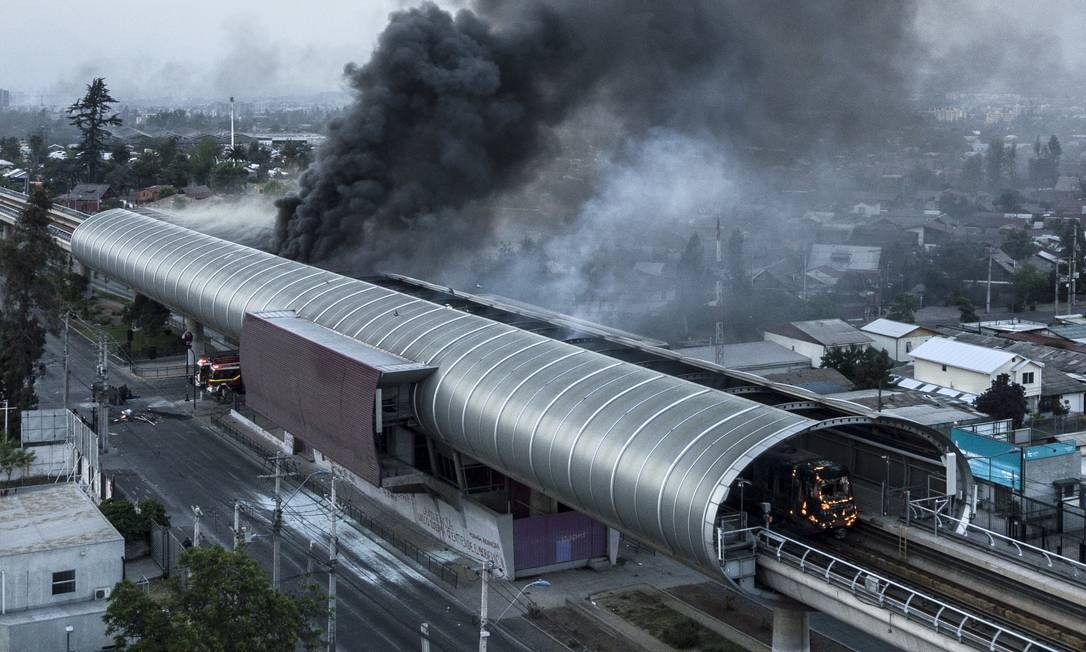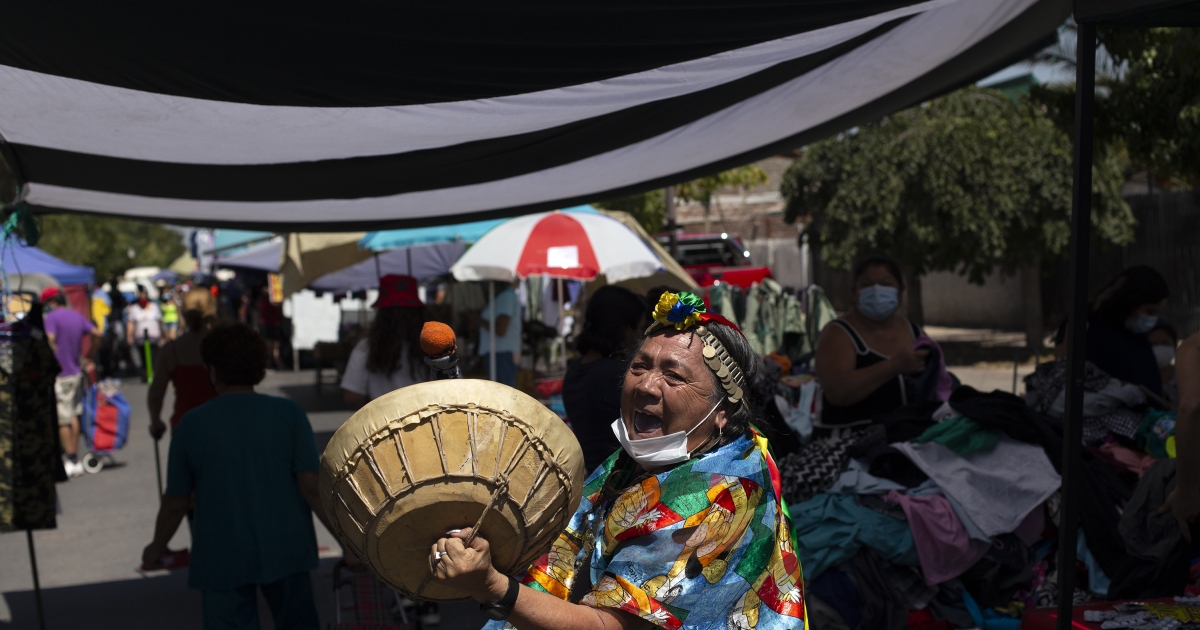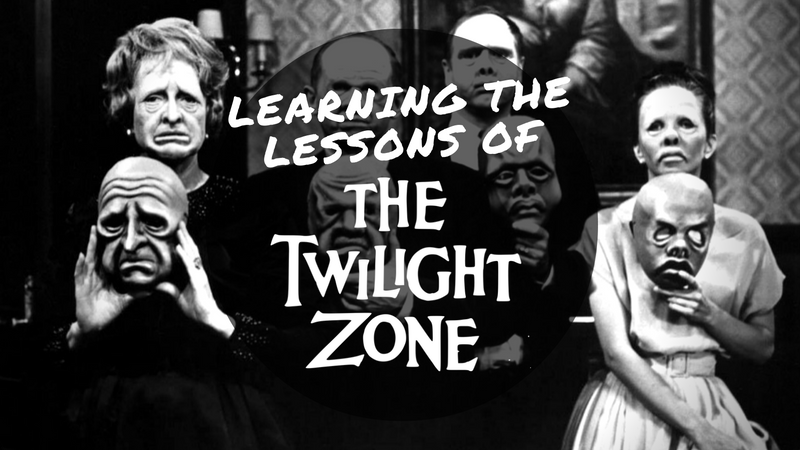A New Constitution For Chile: Will It Finally Represent All Citizens Of Chile?

When a country is facing national protests, one doesn’t immediately point to a new constitution as a magical solution to all the problems. Well, neither did the people of Chile. It was series of events that eventually showed Chileans that creating a new Constitution for Chile would change their country drastically. The root for all of their problems was an economic model that was enforced through the Constitution during Pinochet era.
But how did citizens of Chile come to such a conclusion? How will all citizens be represented in this new constitution for Chile? And when did the feminist and indigenous movement come to the forefront of the entire process? We will find out the answers to these questions and more in the text below.
A train ticket price protest that started an avalanche of events
In 2019, massive protests were being held around Chile. It originated in Santiago de Chile, the capital of the country, and started to carrying the name “Estallido Social” which translates to English as “The Social Outburst”.
The Outburst started as a coordinated fare evasion of train tickets by secondary school students, and very soon became a national protest. Due to protesters taking over control of main train stations and open confrontations with the Carabineros the Chile (national police force), a state of emergency was declared on the 18th of October 2019.

Metro station in Santiago de Chile on fire in October 2019. (1)
Similar to other protests in Latin America, that started with dissatisfaction over transportation ticket prices, the protests in Chile in October 2019 also hid a whole range of issues. From the dissatisfaction with the current political system, a sense of alienation from the political elite to growing inequalities among the citizens of Chile, just to name a few.
How the inequality in Chile pointed to creating a new Constitution
The World Bank noted in 2019, that Chile’s “solid macroeconomic framework” has allowed Chile to slash the number of those living in poverty from 30% in 2000 to 3.7% in 2017. However, in 2018, the OECD reported that the income inequality gap in Chile is 65% wider than the OECD average, “with one of the highest ratios” between the average income of the wealthiest 10% and the poorest 10%.
A commentator for CNN said: “Not only are the poorest 10% not getting a slice of cake, they haven’t even been invited to the party, and the demand for a new constitution is precisely that, a demand to be invited to the party.”
Poverty levels have dropped dramatically in Chile over the last 20 years; it is now the richest country in South America on a per capita basis. But it remains one of the world’s most unequal nations and many Chileans want to see the country’s wealth distributed more equally. As a professor at the University of Cambridge, Jorge Saavedra said: “Chile can be an example of economic development and growth, but definitely not the example of social equality.”
Chile is an example of an economic model, where the State minimally intervenes because the non-intervention makes the marketplace even richer. And this is how the protesters started to ask questions on the role the State is supposed to play in society. And that role is defined in Gen. Augusto Pinochet’s military dictatorship-era constitution, criticized as prioritizing economic interest over basic human needs.
New Constitution and a Chance for more Representation: Gender Equality and Indigenous People
Estefania Campos, regional director of feminist group “Poderosas”, in translation “Powerful Women”, said that throughout the decades, protests in Chile were usually focused on one thing, education, pensions, or women’s rights. Somehow, during these protests, all of the issues merged, and “women’s rights became primordial”.
Women in Chile have been politically active, and active in protests for decades. Even during the Pinochet dictatorship, and afterward. The current movement is a result of societal movement around the globe: It started in 2015 with #NiUnaMenos protests, protesting against gender violence in Latin America. In 2018, the focus became sexism, and abuse, which paralyzed academic institutions for months. Therewithal in 2019 feminist groups gathered once more, to demand, groups in Chile had united thousands of protesters across the country through demands that included greater equality, protection against domestic violence, and extended access to abortion.

Women take part in a demonstration during the International Day for the Elimination of Violence against Women in Santiago, Chile, on Nov. 25, 2020. (2)
This gravitas allowed for the feminist groups to be a part of the decision-making process. The feminist groups decided to go against two options on the table: A constitutional assembly composed fully of popularly elected citizens or a mixed assembly composed of civilians and politicians but neither ensured gender parity, which had long been one of the core feminist demands.
With pressure building up, members of Congress withdrew the initial decision and gave referendum voters the option of choosing gender parity within the constitutional assembly option. This is seen as a historic achievement by the feminist movement in Chile. Achieving parity in the new constitution is their great victory.

Mapuche indigenous Juanita Millal Constituent candidate for the “People’s List” – a list that brings together social leaders and people who made themselves known in the Chilean protests- plays the kultrun (traditional Mapuche instrument) at a fair in Santiago. (3)
Another question is the rights of the indigenous peoples of Chile. 12% of the population of Chile are indigenous people. In Constitutional Convention, the indigenous people of Chile will have a proper representation for the first time. This was allowed by assuring the indigenous peoples 17 out of 155 members of the Convention, which are representative of villages of the Chilean indigenous people. Much like models of Ecuador and Bolivia, there were talks about recognizing culture and language, plus territorial lines of the indigenous people.
How The Referendum Went On and What Are The Next Steps?
The referendum, originally planned for April 2020, was postponed until October 2020. The referendum asked two questions: If the Chileans want a new constitution and what kind of body would they want to draw it up? 78% of Chile’s voting population voted in favor of writing a new constitution.
Changing the constitution may not be the first thing to come to mind when thinking about overlapping the income and gender inequalities in one country. However, this process created a space for debate and most importantly for listening to other issues. And this process can serve as an example for other countries in Latin America.
On the 15th and 16th of May 2021, elections for the members of the Constitutional Convention were held. The results were a surprise because most seats were won by independent candidates on new lists. This result was considered as a mark of the defeat of current day-to-day politics.
The ruling center-right coalition formed around “Vamos por Chile” party, failed to secure 1/3 of the seats in the Constitutional Convention. Proposals to be inserted into the new constitution will require a two-thirds approval and without a third of the delegates, the current government will struggle to block radical changes to the constitution unless it can forge new alliances.
The next step is, for the chosen delegates will spend a maximum 12-month period debating and crafting the new text and Chileans will then vote on the final product. If it fails, Chile will revert to the existing constitution text from the General Pinochet era.
The process that happened in Chile is groundbreaking on the representation and equality level. But it also shows that the scars from the military dictatorship by Pinochet, have not and likely will not, heal fast. This Constitution Convention allows a fresh start for the citizens of Chile. Most notably, and heard all over the world, it is the first constitutional body in the world to stipulate a roughly equal number of male and female delegates.
References:
McGowan, C. (2021, February 16). Why Chile’s New Constitution Is a Feminist Victory. Foreign Policy. https://foreignpolicy.com/2021/02/15/chile-constitution-gender-parity-feminist-protest/
BBC News. (2020, October 26). Jubilation as Chile votes to rewrite constitution. https://www.bbc.com/news/world-latin-america-54687090
Chile. (2018). OECD Quarterly International Trade Statistics, 2017(4), 30–31. https://doi.org/10.1787/int_trade-v2017-4-7-en
3 temas centrales de la Constituyente en Chile y por qué son importantes para América Latina. (2021, May 17). [Video]. YouTube. https://www.youtube.com/watch?v=GPfUWYGjBT8
Al Jazeera. (2021, May 17). Chile chooses independents to draft new constitution. Politics News | Al Jazeera. https://www.aljazeera.com/news/2021/5/17/chile-ruling-coalition-heading-for-upset-in-constitutional-vote
Sherwood, D. F. C. (2021, May 17). Chile’s govt in shock loss as voters pick independents to draft constitution. Reuters. https://www.reuters.com/world/americas/chile-ruling-coalition-heading-disappointment-constitutional-delegates-vote-2021-05-17/
Photo references:
- Women take part in a demonstration during the International Day for the Elimination of Violence against Women in Santiago, Chile, on Nov. 25, 2020. (2020). [Photograph]. https://foreignpolicy.com/2021/02/15/chile-constitution-gender-parity-feminist-protest/
- More than 3,300 apply to rewrite Chile’s constitution. (2021). [Photograph]. https://www.enca.com/sites/default/files/styles/facebook/public/2021-01/000_8yc98m.jpg?h=c6980913&itok=O-QA86b6
- [Subway on fire]. (2021). https://oglobo.globo.com/mundo/2273-estopim-dos-protestos-no-chile-metro-de-santiago-reabre-parcialmente-apos-tres-dias-fechado-rv1-24031334







